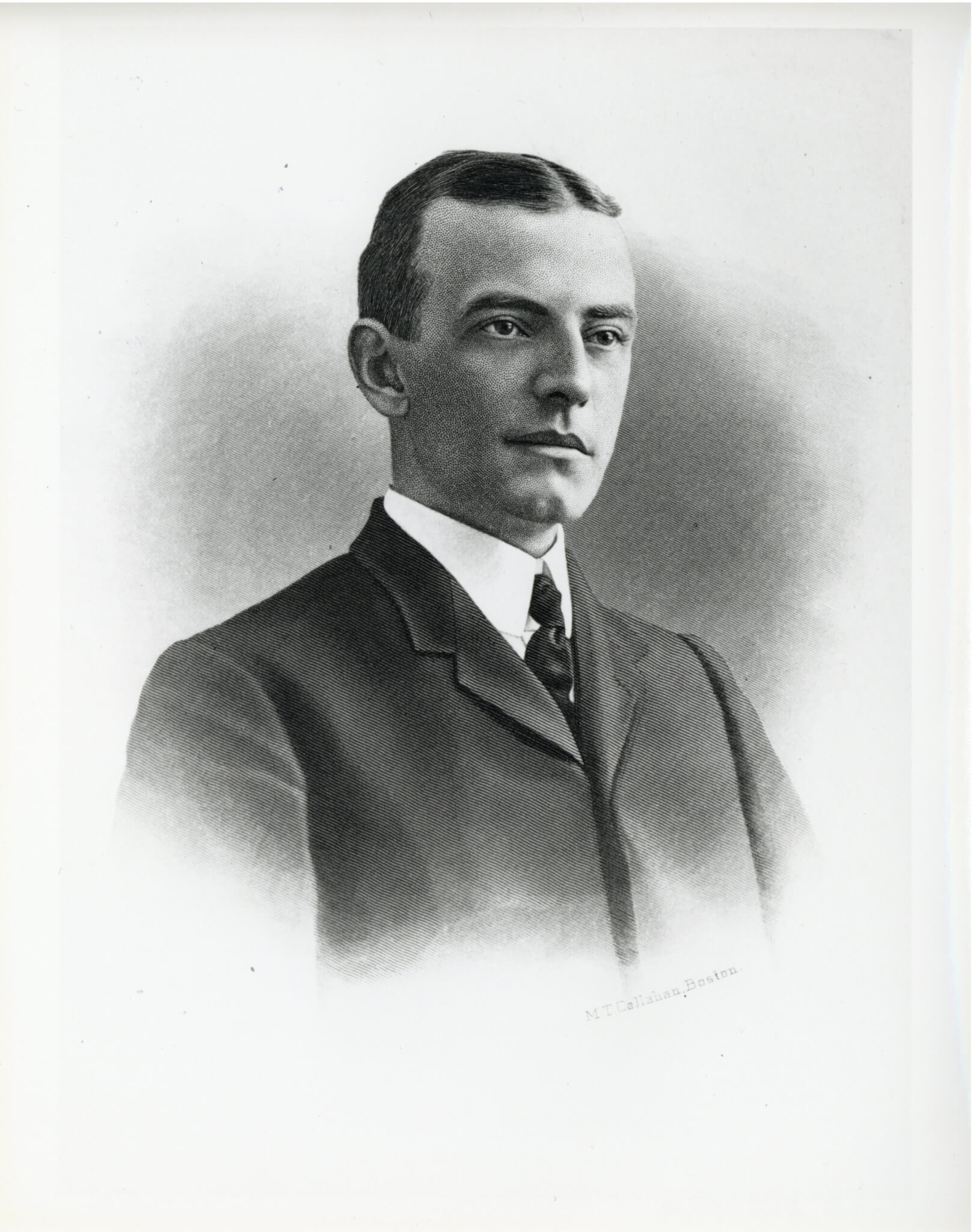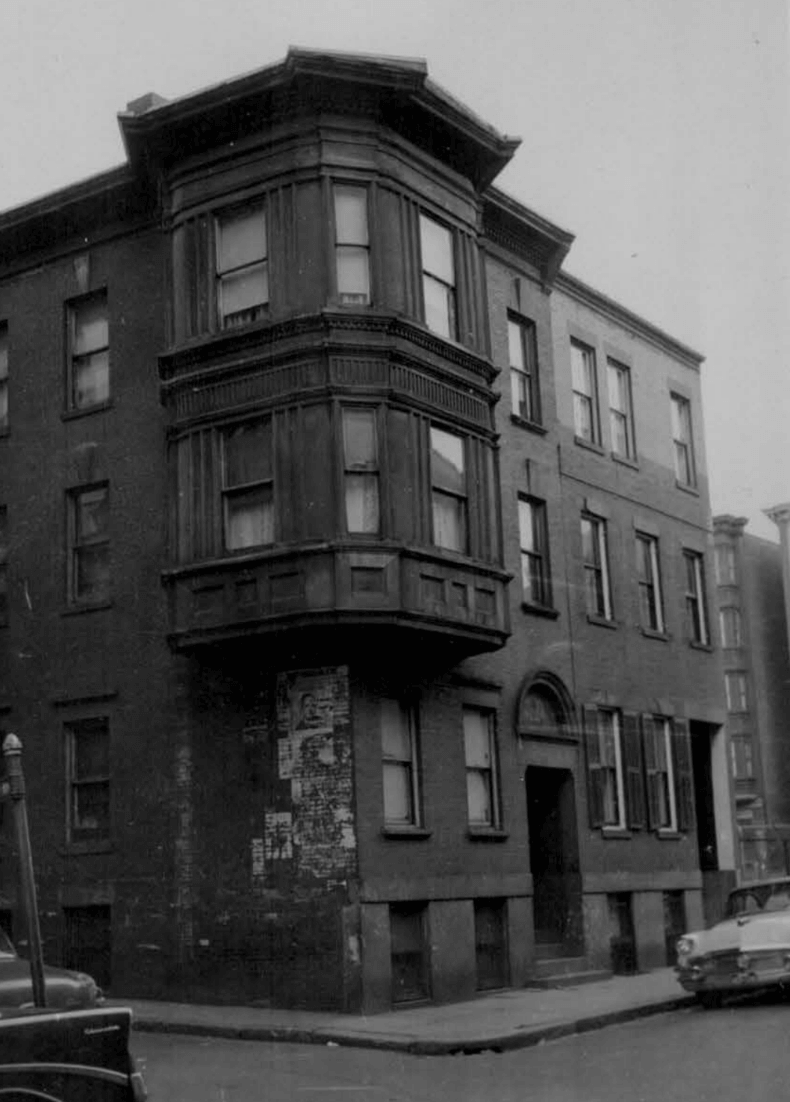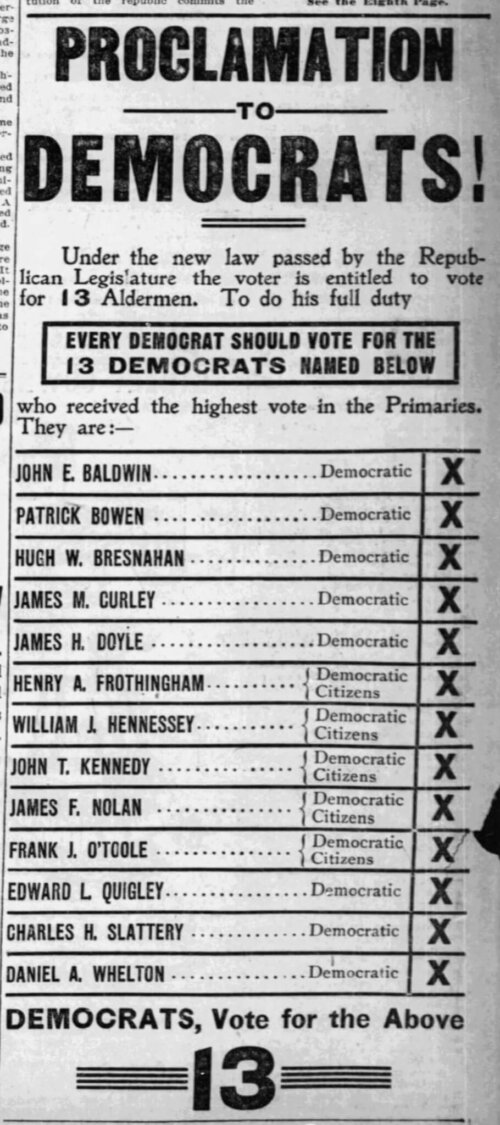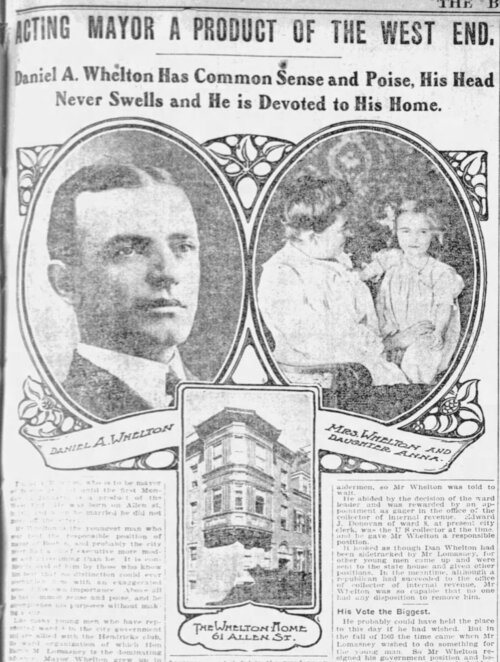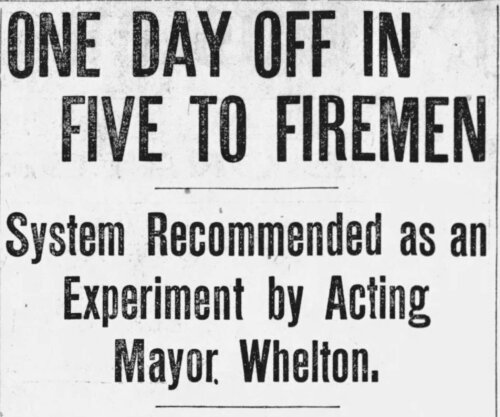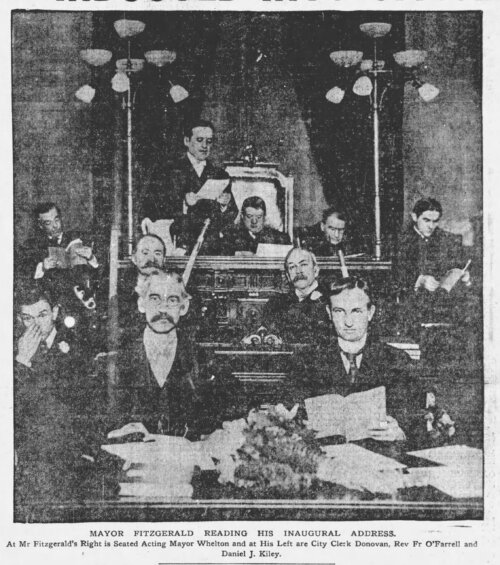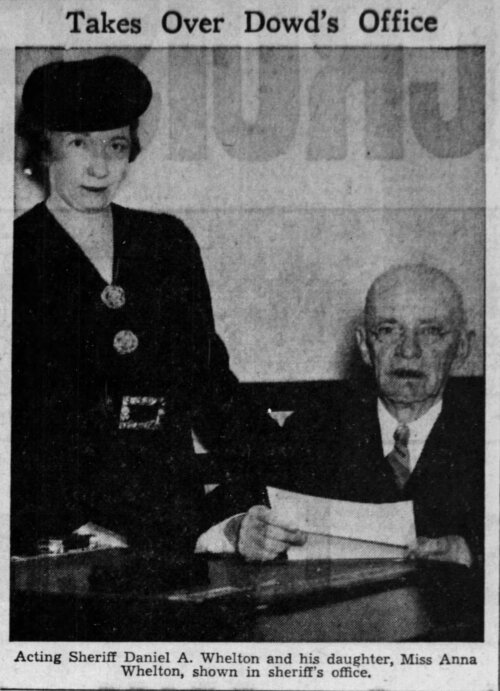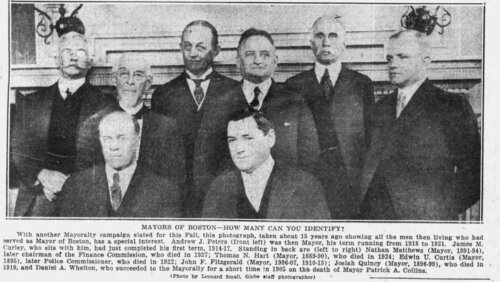The Brief Reign of Daniel A. Whelton, Mayor of Boston
On September 14, 1905, Bostonians were shocked by the sudden death of their mayor, Patrick Collins. Collins died from an acute attack of gastritis at the Homestead Hotel in Hot Springs, Virginia, where he had been recuperating “from the cares and toils of office.” Under such circumstances, the charter of the city stated that the office of mayor would pass to the Chairman of the Board of Aldermen until the next scheduled election. Thus, Daniel A. Whelton, the West End born son of Irish immigrants, briefly became Mayor of Boston.
Daniel Aloysius Whelton was born January 1, 1872 at 69 Billerica Street in the West End of Boston to Daniel and Ann Curry Whelton. The family later moved to Allen Street. He attended St. Mary’s school in the North End and graduated from there in 1886. He later took classes at the Boston Evening High School. Young Whelton developed a love of rowing, a popular sport in the West End, but lacked the build to be a successful oarsman. Instead, he became a promoter and later president of the West End Boat Club. Whelton was also an avid swimmer and described as being “a fastidious dresser, always appearing well groomed.”
After attending school, Whelton worked for two publishing companies: Henry A. Young & Co. (1886-1890) and De Wolfe, Fiske & Co. (1890-1894). He was also interested in politics at an early age and joined the Hendrick’s Club, a Democratic political organization run by West End Ward 8 ward boss and politician, Martin Lomasney. Whelton participated regularly in the Democratic caucuses, where parties selected their candidates for office, and helped Lomasney run the West End voting polls. His efforts and abilities caught the attention of Lomasney, who groomed young Whelton as a future politician.
In 1894 and 1895, Whelton, with Lomasney’s support, won seats on Boston’s Common Council. At the time, the city’s legislature was composed of a larger Common Council of 75 members, and a smaller, at-large Board of Aldermen. He had further ambitions for political office, but out of loyalty to Lomasney, he waited his turn. For that gesture, Lomasney arranged a job for Whelton in the Boston office of the U.S. Revenue Department. On October 17, 1895, Whelton married Nellie Caffrey of the North End at St. Mary’s Church. The couple honeymooned in New York and Washington D.C., then settled in the West End. There they raised their family of six children in their home at 61 Allen Street.
Whelton’s return to politics finally arrived in 1903 when he was nominated to run for a seat on Boston’s Board of Aldermen. He won that race and started serving the following year. He won a seat again for the 1905 board, gaining more votes than all other elected aldermen. At a meeting of the incoming aldermen, his peers elected him their chairman. This victory came despite a lack of endorsement from the Good Government Association, a group of reform minded businessmen who attempted to weaken the Irish political machine of Boston. Their main objection to Whelton was his association with Lomasney and the Hendrick’s Club.
His election to chairman was the key to Whelton’s succession to mayor after the death of Patrick Collins in 1905. At the time, the city charter indicated that after a mayor’s death, the office would pass to the Chairman of the Board of Aldermen until the next scheduled election. However, a story in the September 16, 1905 Boston Globe suggested that supernatural powers may have had a hand in the situation. The article alleged that while the Wheltons were vacationing in Scituate, MA, just before Collin’s death, an “aged Indian woman” approached Mrs. Whelton. She told Mrs. Whelton to be thankful for her husband’s current position, because “events soon to be brought about would materially add to his prestige.”
Upon assuming the title of acting mayor, 33 year old Daniel Whelton became the first native born Irishman to hold the office. Some claim he was also the youngest person to become mayor, but according to the City Archives that distinction belongs to Jonathan Chapman, who was elected the city’s eighth mayor in December, 1839 at the age of 32. During his brief four months as acting mayor, Whelton seemed to take on the job headlong. He used his temporary powers to propose legislation and to veto certain bills coming out of the council. Most famously, he ordered the fire commissioner to begin a program of giving the city’s 1,000 firefighters “one day off in five”, rather than the current one day off every eight. Though some of his actions were clearly meant to weaken political opponents of Lomasney, others were aimed at improving the city and the lives of its citizens.
If Whelton ever harbored a desire to run for mayor in the 1905 election, he never stated so publicly. More importantly, this was not Lomasney’s plan. The ward boss had chosen Edward J. Donovan as his candidate for the Democratic mayoral primary. As it turned out, Donovan lost to John F. Fitzgerald, grandfather of John F. Kennedy and a bitter rival of Lomasney. While still acting mayor, Whelton towed the Lomasney line and campaigned for Donovan in the primary, and later Republican candidate Louis Frothingham in the final election. Fitzgerald won the race easily. As he campaigned for Donovan, Whelton ran again for alderman and won. He would continue to serve in that role through 1908.
In 1909, Whelton began a new career as a Suffolk County deputy sheriff, a position he would hold until his retirement. Similar to his situation as alderman, he was called upon twice to assume the role of acting sheriff: in 1938 upon the death of Sheriff John A. Keliher, and again in 1939 after Sheriff John F. Dowd resigned in the midst of a bribery indictment. Whelton remained a life-long member of the Hendrick’s Club and served as a pall bearer at the funeral of his benefactor, Martin Lomasney, in 1933. The Whelton family maintained connections to the West End with Whelton’s son Francis R. Whelton publishing the short-lived West End News in 1926. The Wheltons eventually moved from the West End, first to 26 Arborview Road, Jamaica Plain, and ultimately to Dorchester. Daniel A Whelton died on November 27, 1953 at the Baker Memorial Hospital. His funeral, held at Boston’s Holy Cross Cathedral, was attended by a long list of Boston’s political elite, including Mayor John Hynes, and fellow former mayors James Michael Curley and Frederick W. Mansfield. He is buried at St. Joseph’s Cemetery in West Roxbury.
Article by Bob Potenza, edited by Jaydie Halperin
Sources: Boston Globe, May 5, 1894, February 14, 1895, March 15, 1895, December 14, 1903, December 16, 1903, December 5, 1904, December 14, 1904, January 1, 1905, September 12, 1905, September 14, 1905, September 15, 1905, September 17, 1905, November 7, 1905, January 1, 1906, July 30, 1932, August 5, 1933, November 13, 1939, April 21,1945, February 16, 1947, November 28, 1953; Boston’s 45 mayors: From John Phillips to Kevin H. White (Boston: City Records, 1975); City of Boston Archives; findagrave.com


